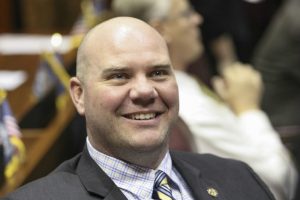 The opportunity to legalize sports betting has provoked the interests of many states across America. The tax revenues that could be received from sports betting would boost the economies of many states, that are striving to find the right panacea for their budget problems. It is not a secret that the multi-billion dollar sports betting industry is involved in the lives of many people and sports betting is one of the most profitable gambling sectors.
The opportunity to legalize sports betting has provoked the interests of many states across America. The tax revenues that could be received from sports betting would boost the economies of many states, that are striving to find the right panacea for their budget problems. It is not a secret that the multi-billion dollar sports betting industry is involved in the lives of many people and sports betting is one of the most profitable gambling sectors.
Unfortunately, sports betting industry has been federally illegal in America under the Professional and Amateur Sports Protection Act (PASPA) that bars the provision of sports betting in all states, except Nevada, Oregon, Delaware and Montana. But there is light at the end of the tunnel for the sports betting industry in America. The U.S. Supreme Court finally agreed to hear New Jersey’s court challenge of PASPA. The state claims that the federal prohibition against sports betting is an unconstitutional infringement.
Industry experts are convinced that the untapped sports betting industry could bring fresh money to the government, should the lawmakers approach the sports betting industry from a different angle. A full victory means that PASPA will be repealed and the different states will be allowed to decide whether they are to embrace the sports betting industry across their boundaries.
A number of states have already announced their interest in adopting a regulated sports betting system. Some of them even put the wheels in motion and started to prepare a white paper on the subject that could prepare the ground for the major gambling expansion.
Indiana Lawmaker May Sponsor a Bill to Legalize Sports Betting Industry
 Indiana joins the pack of states that are pushing to legalize sports wagering within their borders. Republican Alan Morrison plans to sponsor a bill to legalize sports betting in Indiana, supposing that the U.S. Supreme Court decides to repeal the long-standing federal ban. Sports betting fans believe that the court is to overturn PASPA. The Indiana lawmaker hopes that the state will be able to offer legal sports betting at the state’s gaming facilities in the near future.
Indiana joins the pack of states that are pushing to legalize sports wagering within their borders. Republican Alan Morrison plans to sponsor a bill to legalize sports betting in Indiana, supposing that the U.S. Supreme Court decides to repeal the long-standing federal ban. Sports betting fans believe that the court is to overturn PASPA. The Indiana lawmaker hopes that the state will be able to offer legal sports betting at the state’s gaming facilities in the near future.
It is interesting to note that Indiana is the home of the athletics organization NCAA that has opposed the legalization of sports betting industry for years. It is expected that Morrison’s ambitions to present such a bill is to face strong opposition by NCAA. In an interview with the Indy Star, Morrison commented that NCAA should realize that PASPA is not functional anymore.
Even if the Supreme Court does not strike down PASPA, Americans will continue to spend money on sports betting. This will only stimulate the illegal provision of this type of gambling activity, putting players’ interests at risk.



















